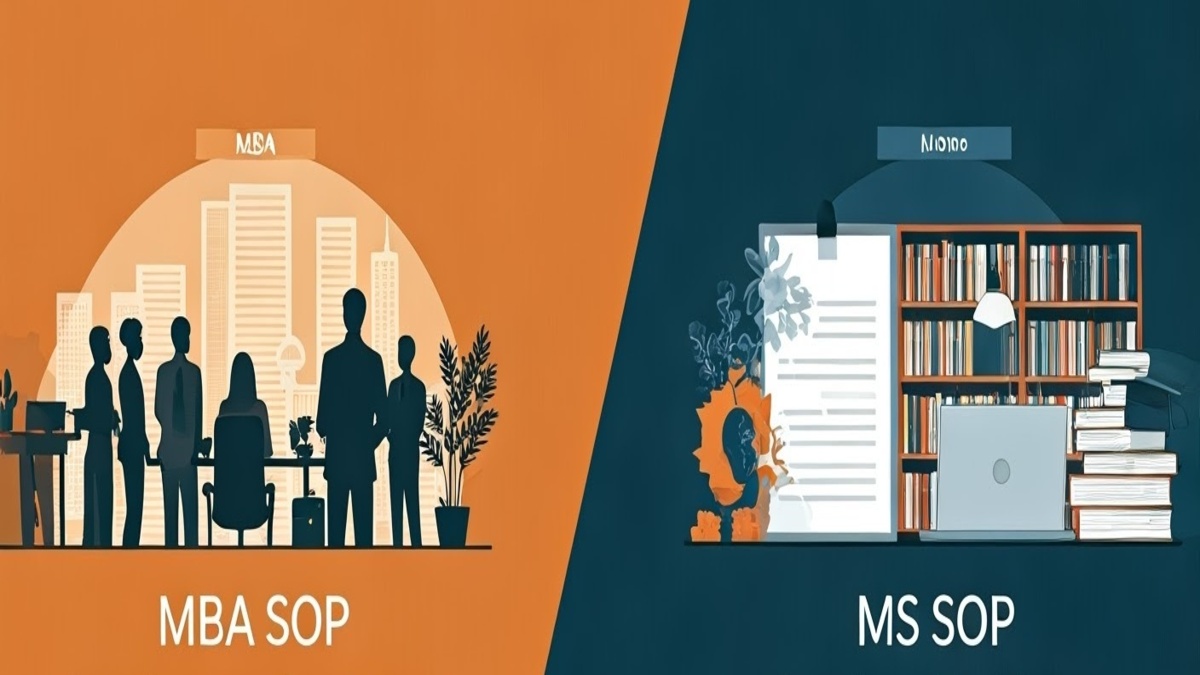Your statement of purpose (SOP) is very important for your MBA application. It gives the admissions committee a first impression of you that goes beyond just your grades and test scores. A strong SOP can greatly improve your application. It shows your unique qualities, experiences, and goals. Still, even the best applicants can make mistakes that hurt their chances of success.
Key Highlights
- A compelling statement of purpose (SOP) is crucial for MBA applications, showcasing your unique qualities and aspirations to the admissions committee.
- This guide highlights common SOP mistakes and provides insights on crafting a winning SOP tailored for Indian B-schools.
- From neglecting the importance of a strong introduction to exceeding the word limit, these pitfalls can hinder your application's success.
- Discover how to highlight your real-world impact, tailor your content, and avoid common errors to make your SOP stand out.
- Enhance your chances of securing admission to your desired MBA program by understanding the nuances of SOP writing.
Key Mistakes to Avoid in Your MBA SOP
A strong SOP does more than repeat what’s in your resume. It shares a story that grabs the reader’s attention. It talks about why you want to get an MBA, what career goals have led you to consider this and how this program fits with your hope of achieving it.
However, most of the good applicants cannot tell their stories clearly because of common mistakes made. If you know some of these mistakes and avoid doing them, you can still improve your application and go ahead to get into any of your dream MBA schools.
1. Overlooking the Role of an Effective Introduction
Introduction is that part of the SOP which will be introduced to people first. Very important because an introduction must attract the eye of the reader at the same time. An ineffective introduction can't help attract much more attention as well as even a general introduction can do nothing but not be paid much attention to.
Start with a great story, interesting question, or bold statement that shows who you are and what you want. Do not use clichés and say you want to get an MBA.
Make your opening special. Show your unique qualities. This will leave a lasting impression on the reader and make them want to learn more about your personal statement.
2. Overemphasis on Early-Age Achievements
Academic achievements are important but the SOP cannot be about what you have achieved since your childhood. It is the recent experiences and why such experiences relate to your career that impress the admissions committee.
Focus on how your undergraduate studies and later experiences have prepared you for an MBA program. Talk about your internships, research projects, or extracurricular activities. These will show the world your ability and potential for leadership.
Remember, your SOP must tell the world how prepared you are to take on an aggressive MBA program and also present a clear vision of the career path in the future.
3. Procrastination and last-minute writing efforts
Writing a great SOP always requires time, thought, and several rounds of edits. If you wait until the last minute to finish your SOP, you lower your chances of success. A rushed SOP usually seems unclear, disorganized, and lacks a strong story.
Make sure you have enough time to think, plan, write, and thoroughly revise your SOP. Early writing will make you think about your experiences, work on your ideas, and really show the reader who you are.
An orderly well-thought SOP reveals attachment towards the program one applies to. Sometimes, even it impresses your admission committee.
4. Failure to meet strict word requirements
The most important thing about writing an SOP is that you stay within the word limit. Admissions committees set these limits because they have many applications to look at. They value being concise. Going over the word count might seem small, but it can be seen in a bad light.
The SOP word limit is a guide to help you share your ideas clearly. Following this limit would mean that you could interpret instructions and state your thoughts in a few words. Such skills are pursued by business schools in applicants.
Make sure your SOP word count matches the stipulated requirements before submitting the same. It may do well to make a good impression in case your application is read more than once.
5. Applying an Insignificant Tone
Ensure your SOP reflects a professional tone. This says maturity and respectfulness. Using informal language and slang will give you a bad impression. It may be a weak spot for your application.
Remember your SOP is an official document. It shows who you are as a candidate for a respected academic program. The tone should show how serious you are about this opportunity.
Always proofread your work. Look for informal language and change it to something more suitable. A polished and professional style will impress the admissions committee.
6. Unnecessary Use of Jargon and Complex Language
While you want to parade your vocabulary, too much verbosity can actually dilute the message. Your SOP ought to widely share your experiences and goals. It shouldn’t be about using hard words.
The simplicity in the language is what makes this message to one and all present on the admissions committee irrespective of their academic background.
Remember, always share interesting and clear ideas and experiences. Of course, you must know that clearness is an important component of good communication within your SOP.
7. Excess Praise of the Organisation
It is vital to show that you admire the school and the program; however, too much praise can seem fake. What the admissions committee really wants to know is why you chose their program.
Instead of telling the readers how fabulous the school is, talk about details that matter to you. Talk about specific faculty members whose research interests match yours. You can also highlight features of the program that catch your eye. Discuss how the chosen course will help you improve your skills for your future goals.
Showing that you truly understand the program's strengths and how they fit your plans will be much more convincing than just giving compliments.
8. Lack of proofreading and revising
Sometimes minor errors or typos in grammar can hurt credibility. This may give a bad impression about you to the readers.
I proofread my SOP for any grammatical spelling or punctuation errors before submitting it. Reading your SOP out loud can help you find clumsy phrases or sentences that do not flow well.
It’s also helpful to have someone else read your SOP. Ask a friend, family member, or mentor to review your statement and share their thoughts. Their fresh viewpoint can help you see areas that need improvement that you might miss.
Writing a Winning SOP for MBA Programs
Getting into the best MBA programs requires a very strong SOP. It should reflect your skills and your command of the global business scene.
You must alter your SOP based on the objectives and values of the Indian business school. By showing your knowledge of the global business environment and sharing experiences that relate to the program, you can make your application much stronger.
Tailoring Your SOP to Reflect Global B-School Expectations
Global B-schools want candidates who really understand the economy, its problems, and new chances. Showing your knowledge in these areas will help your SOP shine.
Don't just compliment the chosen course. Look into the faculty, classes, and recent programs at the B-school. Link your goals to certain parts of the program. Show how it connects to your future plans.
Reframing your statements, highlight your leadership skills, your teamwork abilities, and your entrepreneurial spirit. Those are qualities that will begin to be valued in the business world. A winning SOP shows you know about the Indian business world and you want to help it grow.
Highlighting Real-World Experience and Impact
Go beyond just listing your work experience. Focus on how your work made a real difference. Use numbers and facts to show what you achieved.
Talk about times when you took the lead, fixed problems, or showed leadership. This is especially important in the Indian setting. Explain what challenges businesses in India face and how your skills can help solve these problems.
It shows that you are prepared to meet the stringent demands of the best MBA colleges in India when it is evident that you can apply your knowledge in practical ways.
Conclusion
Your statement of purpose in the MBA application is vital, so pay good attention to it. Try to avoid mistakes like missing a good introduction, focusing too much on early successes, and not following word limits. Keep your tone formal, steer clear of complex words, and make sure to proofread your work. Adjust your SOP to meet Indian B-School expectations by sharing real-world experiences. Remember, a well-crafted SOP will stand out in the tough application process. If you need further assistance on how to draft a winning SOP for Indian B-schools, look at our frequently asked questions section.


